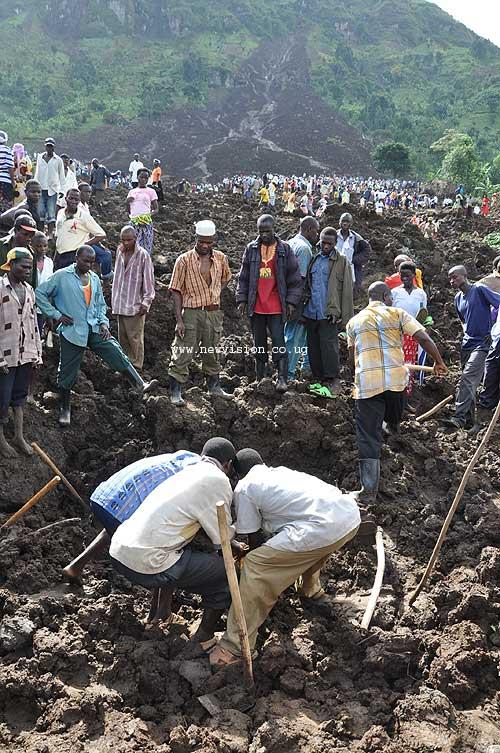Getting use to Climate Change is not to adapt: Landslides & floods in Uganda.
9 December 2010

By Isaac Kabongo
Reality is here living with us, and local communities have accepted to live with it: the impacts of climate change. The floods or prolonged heavy rains that cause landslides are ceasing to be the breaking news in local media and many communities in Uganda; it is now both, a fashion and a way of life. Uganda is vulnerable to the adverse impacts of climate change due to rampant poverty, weak existence of institutional capacity, inadequate skills, limited knowledge by planners and decision makers, low level of technological development, and limited financial resources among others. Climate change’s strikes undermine the achievement of the millennium development goals as well as the overall development strategy of the country.
So the question is ‘for how long should we wait before the international community understands that enough is enough’? The need to take action has outlived its time, but its relevance remains as important as ever. The global community in the spirit of cooperation and development should give priority to coming up with a fair, ambitious and legally binding agreement to tackle climate in Cancun. Communities living with the reality of climate change have been taken as hostages and much is said and promised to help them to come out of this situation, but nothing tangible happens. Local communities have learnt how to live with the dead and the injured due to severe floods, hunger and landslides and others have been accused of cannibalism even when they are not.
The truth is that communities are doing everything possible to adapt. However, their resilience is still very low because yet the existing structures can’t support them.
Very few adaptation options are investigated and promoted as floods and landslides continue to make havoc. Farmers interviewed by CAN Uganda while conducting climate hearings, have clearly indicated that they are not properly equipped to adapt to climatic changes and protect their livelihoods. Furthermore, there is poor preparation to disasters and limited support for local coping strategies. Communities are equipped with rudimentary technologies which makes them almost permanently incapable of responding to the growing threat of climate change in the region.
Early adaptation to climate change can moderate impacts and even secure benefits. New international finance and political attention on climate change also has the potential to strengthen weak institutions and to reduce the social vulnerability and inequity which has long been a target of development assistance. However, although pockets of excellent technical expertise and disparate activities on climate change are emerging, in part through the response to the UNFCCC, action by government to date falls well short of what is needed to climate-proof Uganda's development. Alongside explicit capacity constraints in terms of resources and personnel, there are less obvious constraints to effective action such as confused mandates, dysfunctional arrangements for inter-agency working, and weak institutional and professional incentives for pro-active action.
The international climate talks through the UNFCCC must work quickly and decisively towards a fair, ambitious and legally binding climate change agreement. The international community as it tackles climate change should put humanity first before economics. Time will judge global citizens wrong, if we fail to bold action to reduce the impacts of climate change.

